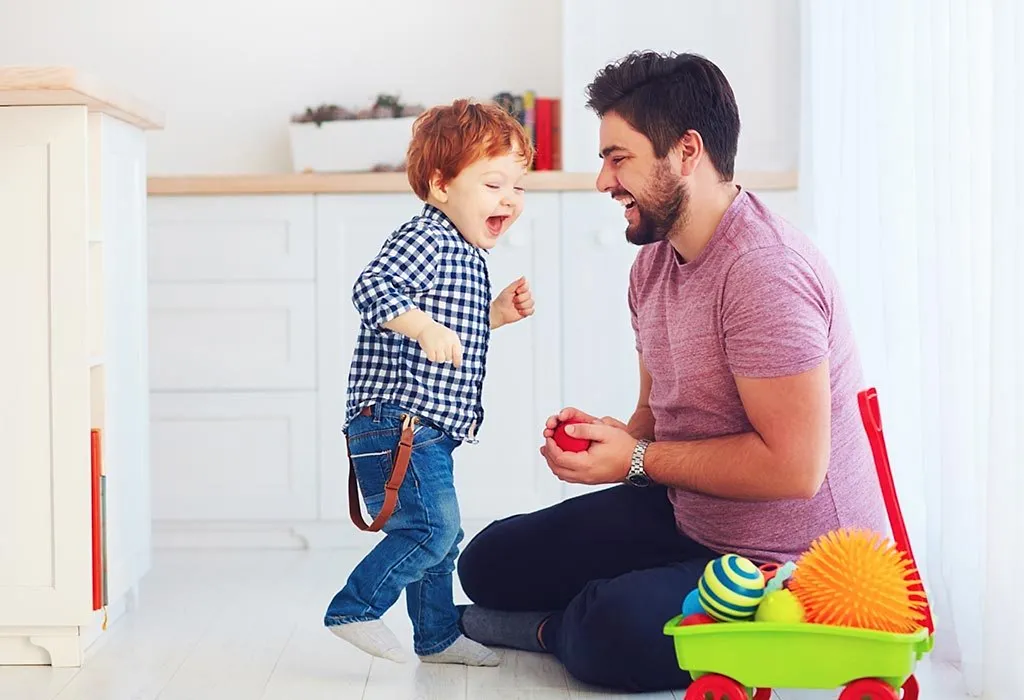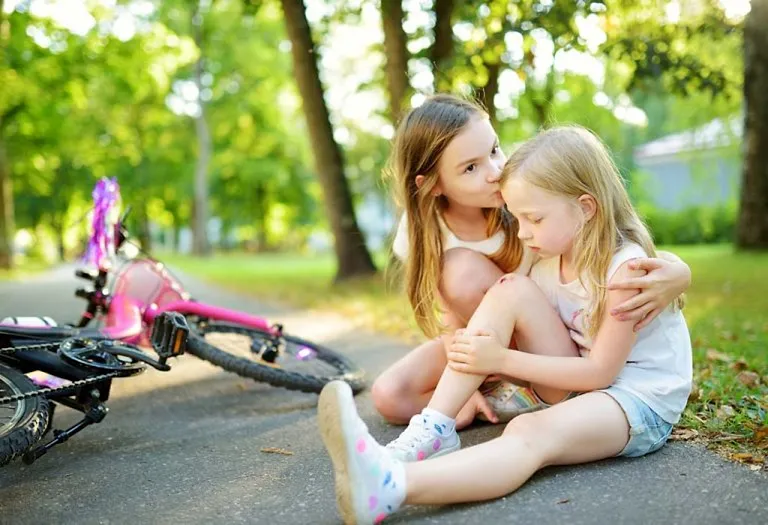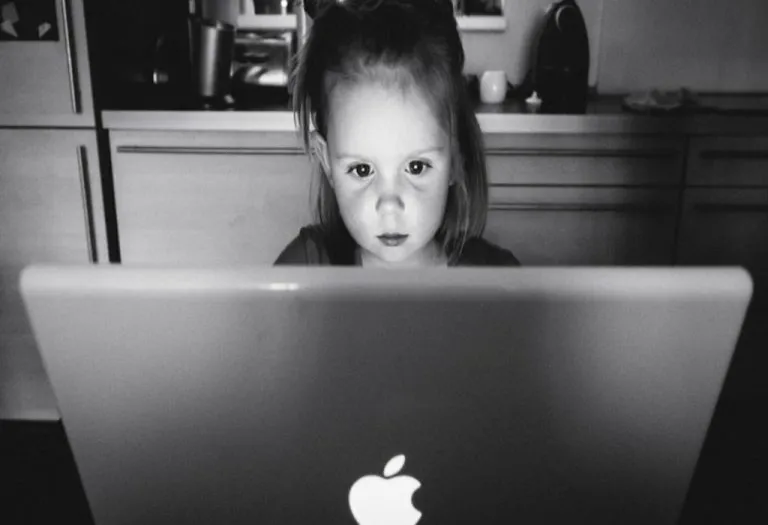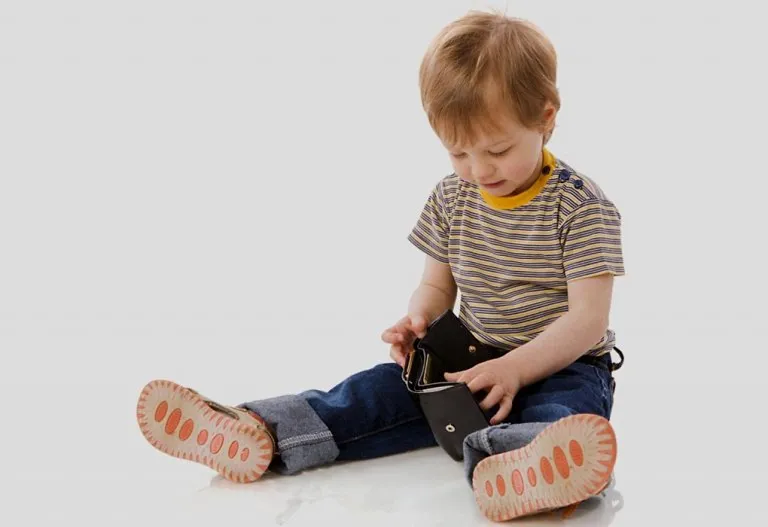15 Helpful Parenting Tips for Preschoolers

- Why Is It Important to Parenting Your Preschooler Well?
- Best Parenting Tips for Preschoolers
- Common Mistakes Parents Make With Preschoolers
- When to Be Concerned About Your Preschooler’s Behaviour?
- FAQs
If you’re a parent to a preschooler who is brimming with energy and is curious about every little thing, it must be hard for you to keep up with his energy levels. Your little bundle of happiness must be keeping you on your toes all the time. And at times, you may find it challenging and tiring to run after your little one. Raising kids is one of the most challenging jobs, but you don’t have to do it all alone. We’re here to help you! We bring some parenting tips for preschoolers that will help you raise your preschooler just the way you want. These parenting tips for preschoolers’ behaviour will ensure the right path for their creativity and exploration.
Why Is It Important to Parenting Your Preschooler Well?
Preschoolers’ curiosity knows no bounds. In this quest for the curiosity of knowing, ‘What is that?’ ‘Why is that?’ ‘How is that?’ and ‘Where is that?’ they often behavioural limits, not knowing what will happen next. This is why you must have seen children between 3 and 5 often stirring up trouble if you leave them off your sight for even one second. One moment, they are standing beside you, and the other moment, they are pulling a cat’s tail or touching something dangerous.
It’s not that they want to upset you or try to be malicious; they are simply curious, and their curiosity leads them to do things. This is why parenting a preschooler well in their early years with limits, rules, and boundaries is important for parents and caregivers. Rules and boundaries are not for ending their fun or hindering their creativity but to provide the answers they want and keep them safe. Establishing rules and enforcing them in the house and outside helps children learn discipline, build a reliable structure of living, and keep them safe and secure.
Best Parenting Tips for Preschoolers

The brain development during preschool years is categorised as “blossoming” with dynamic and physiological changes (1). This is the reason it is the right time to instil some rules and discipline in children’s lives that will pave the way for future discipline. Here are some parenting tips for kindergarteners that parents of preschoolers can follow.
1. Polish their communication skills
Communication skills of toddlers are important. The clearer their communication skills are, the better they will fare with other kids and teachers once they start going to preschool. This is the time for language polishing through reading, singing, and engaging in activities (2).
2. Teach them to be good listeners
We all know that it’s challenging to contain the curious mind of toddlers. However, when in preschool, your little one will have to take part in various activities, such as singing, drawing, listening to the teacher’s explanations, and so on. All these will require your toddler to sit still and pay attention. Being a good listener will help him proactively take part in various activities in preschool.
3. Encourage teamwork
Once your toddler starts going to school, he will be spending good 4-5 hours with his peers and teachers, and take part in various group activities. To ensure that your little one talks to other kids and engages with them, he needs to learn about teamwork. While he may be the centre of attention at home and all his demands must be fulfilled, the same won’t happen in school. To ensure that your munchkin gets along with other kids, you will need to teach him about teamwork. You can help build this skill in your toddler by playing games with him at home.
4. Teach them to follow instructions
This is a must! You must teach your little one to follow instructions and directions given to him. In preschool, your child will have to listen to his teacher and follow his instructions, so you must prepare him for the same. And you can do so by all by means of fun and games.
5. Help toddlers to work with stationery
Preschools offer various activities that require the use of objects such as pencils, crayons, scissors, and wax or colour pencils. You can help your toddler how to handle them correctly by encouraging activities like drawing and painting. Depending on age, they can be taught how to write strokes of alphabets, numbers, etc.
6. Encourage them to be independent
Your child needs to be independent and learn to do certain activities on his own when he starts going to preschool. At home, you will be there to wipe your toddler’s face or help him wash his hands after his mealtimes or playtime. But in preschool, he might have to do it all by himself. So, you need to teach him a few things before he goes to preschool. Learning these little tasks will instil a sense of responsibility and independence in toddlers, which will help them in life. You can start making them responsible and independent from home by staring with asking them to help you with house chores (3).
7. Have a set routine
Having a set routine for various activities, such as playing, meals, snacks, sleep, etc., is important for both of you. Not only will it teach discipline to your kid, but it will also help you manage your own time efficiently. Another advantage is that you won’t have to run after your toddler every day for meals or bedtime.
8. Try not to be too strict
Discipline should not be confused with strictness. Children tend to be stubborn if you are too strict with them. So, you need to talk to your child in a friendly manner and win his trust so that he can communicate with you without fear. It will also help you to have a strong bond with your child. But it is also important to be clear and consistent with your child when you are disciplining them (4).
9. Don’t give in to their tantrums
Having said that, you can’t be too mellow as well! Try to find the right balance that is neither too strict nor too soft. Don’t put a blind eye to your child’s tantrums. Instead, direct him to do something else if he is throwing a tantrum over a specific thing. The best way is to identify the cause of such behaviour and address it.
10. Don’t treat them like an adult
Sometimes, parents expect way too much out of their children. You may want to treat your child like an adult, but you have to understand your little one is still at a learning stage and that he is a kid. Don’t expect to understand everything you tell him immediately. Have patience, and let him learn at his own pace. The important thing is that you encourage him to learn and keep trying. You may want to find out what interests and motivates your child. Be creative when you give him a task, and ensure that it’s fun for both of you rather than a chore which you have to go through.
11. Don’t be a “no” person all the time
It might be challenging, but there are ways to go about it! Try not to say “No” very often. Kids’ hearts are sensitive, and they may feel unloved or undesirable if you say no to them often. If you say ‘no’ to everything to your child, it may lead to a rebellious attitude in him. Try talking to your child in a gentle way when you’re saying no. Explain why you are saying ‘no’ and he will understand.
12. Praise them for being good
We all love it when we are praised for our efforts. The same is with kids. In order to raise an independent and responsible child, you have to encourage them every. If they do something wrong, then let them know why it is wrong. Such awareness will make them conscious of what they are doing, and whether their actions will have a negative consequence.
13. Don’t put too many things on their plate
Every child is different and learns at his own pace. As a parent, of course, you will have certain expectations of your child. However, it is also the job of a parent to understand their child and accept his capabilities. It’s important not to put too many things on toddlers’ plates at once; remember, they are too young and still learning. Maintain a balanced schedule that is comfortable for your toddler.
14. Be a role model to them
Your children will be spending most of their time with you. How you behave, what you do, how you do things, and more will impact your child’s development. Be a role model to your child, so he can look up to you and follow in your footsteps.
15. Create a strong bond
Raising a child can be challenging but it’s a rewarding experience too. So enjoy the little things with your toddler and engage in fun activities together. Doing simple things together will help you create trust and a strong bond with your child. You should be a parent as well as a friend to your kids, and someone your child can rely on without hesitation.
Common Mistakes Parents Make With Preschoolers
No parent wants less for their kids; every single one of them thinks best for their child’s interests. However, many a time, those good intentions backfire or demotivate their child. Below are a few common mistakes that parents should avoid with their preschoolers:
1. Setting a Bad Example
Little ones are impressionable and they learn by observing their parents and surroundings. If you want to teach them a good habit, then start the change from within yourself first. You can’t expect them to eat a healthy meal when you are living on potato chips and cookies. If you want to inculcate reading habits in your child, you will have to show them.
2. Saying Yes Always
Do not give into your child’s demand almost always. If you always say ‘yes’ to your child, he will ask for anything and everything. Don’t let your child manipulate you; when it’s time to say no, say it clearly. Also, explain to your child why you are saying ‘no’.
3. Being Overprotective
It’s natural for parents to be protective of their kids, but being overprotecting hinders their growth. They start to rely way too much on their parents for almost everything. When parenting preschoolers, you should let them initiate things which they are capable of doing on their own. If your child falls while playing or walking, don’t rush to him each and every time. Let him learn how to stand up on his own. Watch and observe, and help him if he needs it. Let him grow!
4. Bribing Them
Bribing kids with chocolates or other treats to make them do something is a common approach, but something parents should avoid. For example, offering a piece of cake for eating veggies won’t help them like veggies. It might backfire as well, and they might start to hate it.
5. Comparing With Siblings
Many parents forget that every child is different and unique. Don’t compare children with their siblings. Such behaviour will discourage them and make them feel unloved. They may start to harbour hatred towards their siblings as well.
When to Be Concerned About Your Preschooler’s Behaviour?
It is important for parents and caregivers to always be on alert to detect anything wrong with their child’s usual behaviour. If you see a difference in their behaviour pattern, learning, and regulating their emotions than their usual behaviour, you should consider talking to a paediatrician or a child psychologist or therapist.
1. Anxiety and Depression
Although uncommon, preschoolers, too, are under the radar of developing anxiety and depression. Some common symptoms to look out for in children are:
- Acute separation anxiety
- Extreme fear of going to school or attending social events
- Lack of interest in doing fun activities
- Changes in eating habits and sleeping patterns
- Extreme lethargy
- Developing fears or phobias
- Frequent anger or irritability
2. Behavioural or Conduct Disorders
It is common for preschoolers to test behavioural and social boundaries, but when the disruptive behaviour becomes repetitive, it indicates a problem.
- Refusing to obey rules,
- Showing unnecessary temper in a situation, and
- Intentional violence and aggression towards animals and other kids are common signs of behavioural or conduct disorder in preschool children.
3. Learning Disorders
Children with behavioural or developmental disorders often have accompanying learning disorders, such as (5):
- Attention deficit hyperactivity disorder (ADHD)
- Autism spectrum disorder (ASD)
- Dyslexia
- Speech delay or speech disorders
FAQs
1. What are the developmental milestones of preschoolers?
Developing language, mastering their fine motor and physical skills, and learning about their surroundings are the major milestones of preschool children. They also learn to engage in imaginative play, learn to name colours, distinguish body parts, and other physical entities like house, plate, table, chair, etc., and express their emotions.
2. What is the most important tip for parents of preschoolers?
The world of make-believe is not new for preschoolers, but that does not mean they cannot distinguish between what is real and what is pretend. Although the guesses may not always be correct. This is the time for parents to introduce children to real-life media like animals, plants, and birds, and also fictional worlds with dragons and unicorns. Just make sure you are not exposing your child to inappropriate content.
3. When is a child ready for kindergarten learning?
Most children by the age of five are almost ready to attend a preschool or kindergarten (6). The best cue is that your child is feeling comfortable with other people other than the primary caregiver and is showing readiness for learning.
4. What if my preschooler nitpicks while eating?
If your child is nitpicking or refusing to eat certain foods, don’t force them to eat. Instead, find creative ways to make them eat while respecting their limits. Try making sandwiches with funny faces or buritos in the form of caterpillar. Ask them if any food, flavour, or texture is bothering them and change that if it does.
Parenting a preschooler is challenging, but it’s full of fun as well. At times, you may find it difficult to keep up with your child’s energy levels and curiosity, but you know it well that your child couldn’t have asked for better parents. Refer to these parenting tips if you need help and trust your parenting style. We know you’re doing a great job!
References/Resources:
1. Brown TT, Jernigan TL. Brain development during the preschool years. Neuropsychol Rev.; PubMed Central; https://www.ncbi.nlm.nih.gov/pmc/articles/PMC3511633/; December 2012
2. Ultimate Guide to Parenting Preschoolers (3-5 Years); Family Resource Centers; https://www.nantucketfamilyresourcecenter.org/ultimate-guide-to-parenting-preschoolers-3-5-years/
3. Positive Parenting Tips: Preschoolers (3–5 years old); CDC; https://www.cdc.gov/child-development/positive-parenting-tips/preschooler-3-5-years.html
4. Helpful Tips for Parents of Pre-K Children (4-5 years); Department of Lifelong Education, Advancement, and Potential, State of Michigan; https://www.michigan.gov/mikidsmatter/parents/pre-k/parenting
5. Children’s Mental Disorders; CDC; https://www.cdc.gov/childrensmentalhealth/symptoms.html
6. Getting You and Your Child Ready for Kindergarten; Department of Lifelong Education, Advancement, and Potential, State of Michigan; https://www.michigan.gov/mikidsmatter/parents/pre-k/faq-transition-to-kindergarten
Also Read:
Developmental Disorders in Preschoolers
What Is The Best Age To Start Preschool for Kids?
Ways to Manage Separation Anxiety in Preschoolers
Was This Article Helpful?
Parenting is a huge responsibility, for you as a caregiver, but also for us as a parenting content platform. We understand that and take our responsibility of creating credible content seriously. FirstCry Parenting articles are written and published only after extensive research using factually sound references to deliver quality content that is accurate, validated by experts, and completely reliable. To understand how we go about creating content that is credible, read our editorial policy here.
























